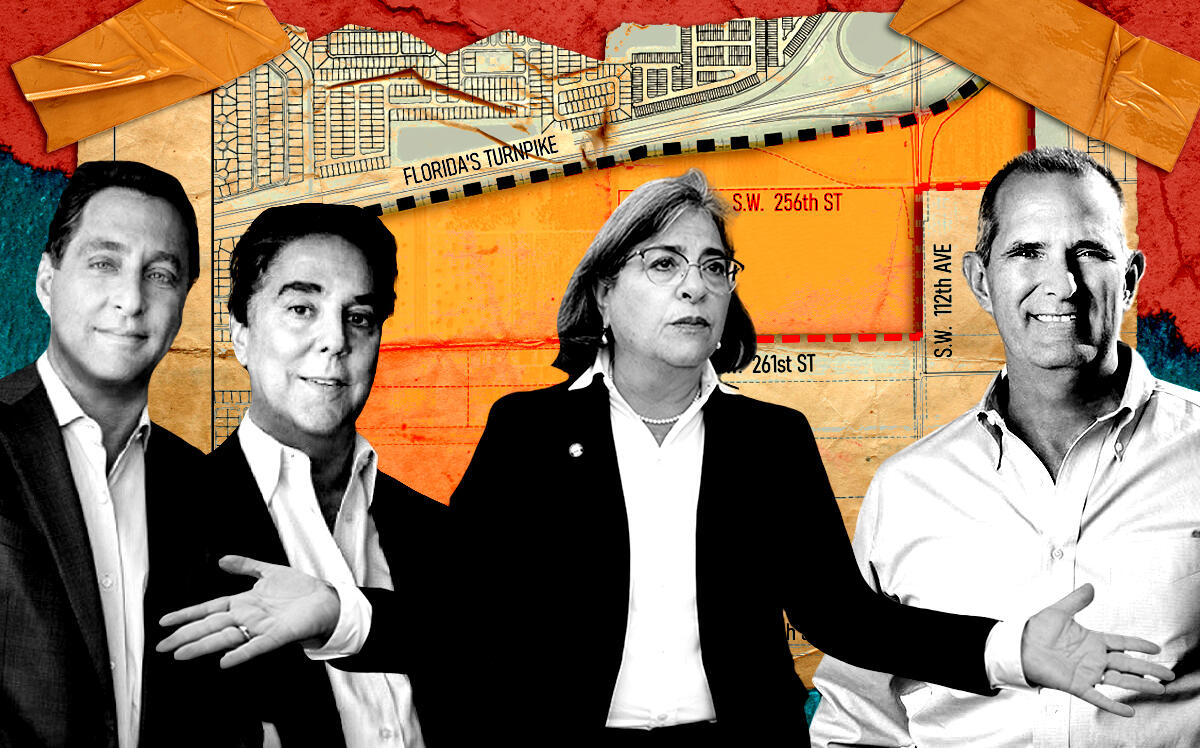A controversial industrial megaproject survived a last-ditch effort by Miami-Dade Mayor Daniella Levine Cava to kill the proposal.
County commissioners on Tuesday voted to quash the mayor’s veto of their approval of South Dade Logistics and Technology District, a development that would sprawl 378 acres outside the Urban Development Boundary in south Miami-Dade. The decision puts an end to months of contentious commission meetings over the proposal to build 5.9 million square feet of warehouses with offices and retail.
At issue: The expansion of the UDB, a greenbelt that is meant to protect farmland, wetlands, the Everglades and Biscayne Bay from suburban sprawl. While project proponents have argued the development would bring much needed jobs and an economic boost to a largely bedroom community in south Miami-Dade, opponents have decried the environmental impacts and argued that enough developable industrial land exists within the UDB.
It took developers Stephen Blumenthal and Jose Hevia five tries to win commission approval this year. The duo repeatedly tweaked their plan to try to obtain the two-thirds commission vote required for the UDB to be moved. First, they cut the project’s size by roughly half. Among their subsequent deal sweeteners, Blumenthal and Hevia committed to donating 622 acres of environmentally sensitive land to a county preservation program.
Blumenthal, of Coral Gables-based Coral Rock Development, and Hevia, of Miami-based Aligned Real Estate Holdings, won the needed eight commission votes in favor of their project on Nov. 1.
Levine Cava, who has consistently opposed the development, vetoed the commission’s approval on Nov. 10. Eight commission votes were needed to override her veto. On Tuesday, the bloc didn’t break, and Levine Cava lost her veto.
“To vote for this project is to vote against the future of our [Biscayne] Bay, our water and our people. It opens the floodgates for sprawl and an unsustainable” growth,” Levine Cava said in a statement to commissioners before they voted to quash her veto. “The truth is this project will benefit the few at the expense of the many.”
Levine Cava and environmentalists have argued that South Dade Logistics will rise on land that is needed for future Everglades and Biscayne Bay restoration. A letter from the federal Office of Everglades Restoration Initiatives, which Levine Cava released on Monday, said that Biscayne Bay restoration planners have chosen three sites for the work, and the South Dade Logistics site is included in all three, the Miami Herald reported.
Levine Cava also pushed back on the developers’ main talking point of South Dade Logistics being an economic boon. “The project brings no guarantee of jobs for South Dade residents — while setting a dangerous precedent to allow irresponsible development in the areas most at risk for flooding and sea-level rise,” she said in a statement issued shortly after the vote.
Blumenthal and Hevia want to build the project on the southeast corner of the Florida Turnpike and Southwest 122nd Avenue. A spokesperson for the duo touted the outcome of Tuesday’s vote.
“Approval of our application means the South Dade Logistics and Technology District is one step closer to bringing thousands of good-paying jobs to the fastest-growing community in all of Miami-Dade County,” the spokesperson said in an emailed statement.
The developers have argued that the site is contaminated with arsenic, which they will clean up at no cost to the county. Otherwise, it would cost Miami-Dade $47 million to remediate the property on its own, they claim. Also, the development actually will be environmentally beneficial and allow farmers to sell land that they soon won’t be able to use because of sea-level rise, several commissioners who support the plan have said.
“Throughout the application process, our team took into consideration the advice and concerns expressed by commissioners, county planners and environmental experts,” the spokesperson said in the statement. “The result was a smaller, but much better application that balanced the need for economic opportunity in South Dade with the need to protect our natural resources.
